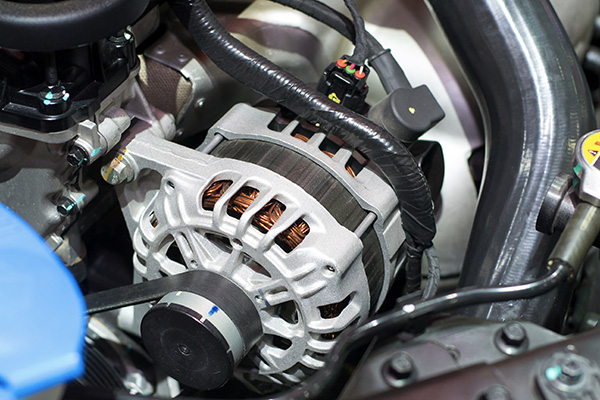
When it comes to your vehicle’s electrical system, the battery often gets all the attention. While it’s essential for starting your car, the real workhorse behind keeping all your electronics running is the alternator. Understanding what the alternator does and the consequences of its failure can help you stay prepared and prevent unexpected breakdowns.
The Main Role of the Alternator
The alternator’s primary job is to generate electricity to power your car’s electrical systems while the engine is running and to keep the battery charged. Once your engine starts, the alternator takes over from the battery to supply energy to components like the headlights, air conditioning, radio, and power windows.
Without a working alternator, your battery would quickly drain, and your car would lose power.
How the Alternator Works
The alternator is driven by a belt connected to the engine (often the serpentine belt). As the engine runs, it turns the alternator’s pulley, spinning an internal rotor and generating alternating current (AC). A built-in rectifier then converts this AC into direct current (DC), which your car’s systems and battery use.
This continuous cycle keeps your electrical systems running smoothly and ensures your battery stays charged and ready for the next start.
Signs of a Failing Alternator
Like any component, alternators wear out over time. Here are some warning signs that your alternator might be failing:
- Dim or flickering headlights: If your headlights get dim when idling or brighten when revving the engine, it may indicate inconsistent power output from the alternator.
- Electrical issues: Malfunctions in power windows, locks, radio, or dashboard lights often point to a struggling alternator.
- Battery warning light: Many vehicles have a dashboard light shaped like a battery that illuminates when there’s a charging problem.
- Strange noises: A failing alternator can produce whining or grinding sounds, often caused by worn-out bearings or internal components.
- Dead battery: While a dead battery can have other causes, a faulty alternator may not be properly charging it.
What Happens If the Alternator Fails Completely
If your alternator fails entirely, your vehicle will continue running only as long as the battery holds a charge. Once the battery depletes, your car will shut down, potentially leaving you stranded. Without the alternator, critical systems like steering assist and braking aids may also fail, creating a dangerous situation.
Protect Your Alternator
While alternators will eventually need replacement, you can extend their life with some simple habits:
Avoid running high-power accessories (like heated seats and defrosters) for long periods while idling.
Keep the serpentine belt in good condition and replace it as recommended.
Address oil or coolant leaks quickly to prevent damage to the alternator from contamination.
Regular Inspections Matter
Routine inspections are key to catching alternator issues before they become serious. During a regular maintenance visit, technicians can check the alternator’s output, inspect belts, and test the battery to ensure the whole charging system is working properly.
Schedule Charging System Service at Doctor of Motors in Chico, CA
Your alternator plays a crucial role in your car’s reliability and safety. If you’ve noticed dim lights, electrical glitches, or other signs of trouble, don’t wait for a complete breakdown. The skilled team at Doctor of Motors in Chico, CA, can test and service your alternator and battery to keep your vehicle running strong.
Schedule your inspection today and drive with confidence knowing your electrical system is in great shape.